The Enforcement Process Of The LCLB
May 19, 2015 | by Dennis Coates, KC
The current process overview:
The Liquor Control Licensing Branch (LCLB) website has some excellent material as background to understanding the enforcement process including articles on the Enforcement Process, Enforcement Hearing Rules, Annual Reports on the Minors as Agents Program (MAP) and copies of decisions of the adjudicators hearing the disputed allegations.
Contraventions, which look like a normal ticket, get issued either after a visit by a Branch inspector or after an incident or accident, particularly if the circumstances involve the RCMP. The receipt of the contravention should trigger a process by the licensee to gather the facts around the alleged contravention, including getting written statements from employees who were working at the time, preserving a video if one exists and generally determining what occurred on the premises at the time of the alleged offense.
The next step, if the Branch considers it should proceed to an enforcement hearing, is that a Notice of Enforcement Hearing (NOEA) will be mailed to the licensee. At that point decision as to what the licensee should do, is required. The licensee must either sign a waiver and accept the suggested penalty or dispute either the offence, the penalty or both. The LCLB will request a decision fairly quickly.
A prehearing telephone conference will be scheduled. At such time, disclosure of witnesses, determination of length of hearing and date for hearing will be decided. The licensee has the option to sign a waiver at any time, up until the time of the scheduled hearing.
My advice is there is no real rush to make a decision. Assume you are defending the allegations. You can change your position if necessary later.
The factors which determine whether a waiver should be signed:
The Liquor Policy Review has directed that a new process for determining disputes, on enforcement and other matters, may be appropriate.
Until 2002, a body known as the Liquor Appeal Board existed where appeals could be taken from decisions of the LCLB. It was a body independent of the LCLB, and a body where licensees could represent themselves. The current system has no independent adjudicator, as the adjudicator is an appointment of the General Manager of the LCLB, paid by the LCLB and part of the LCLB. This does not imply that the current adjudicators do not act independently, but the current process does not have an independent review of Branch decisions and actions.
In dealing with current problems, it may be advantageous to try and wait for the new adjudication system to be implemented later this year. An appeal of a current decision requires a Judicial Review in Supreme Court. This requires legal help and is very expensive – usually $15,000 or more in legal fees – which make it too expensive and too time consuming for most licensees. Also, the LCLB has a current policy that they will not deal with any licensing issues while an appeal or hearing process is underway, which at times, forces licensees to capitulate and sign a waiver even if there is a proper defense. For example, ownership transfers, capacity changes, etc.
The severity of the penalty for a second offence may dictate that a licensee must defend an enforcement action. As an example, on the first offense, the common penalty for a minor in an Licensee Retail Store (LRS) under the MAP initiative is $7,500 and often the fine will be paid rather than pay legal fees and use valuable time.
The real concern, which I think will be alleviated by changes coming out of the Liquor Policy Review process, is the penalty for a second offence. In this case, on a secondary offense, there is no option for a monetary fine, and the range of days of closure is 20 to 30, which could do permanent damage to an LRS business. There must be a one year gap from the first offence, to not trigger the higher penalty of the second offence.
The 2013/14 LCLB MAP report indicates there were 130 MAP inspections in LRS’s, and a total of 253 in all categories of licenses, and 70 cases of sales to minors.
In summary, when a licensee is deciding whether to sign a waiver, the important issues are:
- severity of a second offense penalty
- likelihood of a real defense
- cost
- other pending licensing issues
Preparation for a hearing and decision to defend an alleged infraction:
The normal available defence is that of due diligence; which in general terms, means that a licensee must show that it was duly diligent in taking reasonable steps to ensure that the contravention would not occur. This involves procedures such as staff training, staff meetings and licensee policy and operational manuals, which should normally prevent the infraction from occurring. The licensee must demonstrate that the procedures are continually acted upon and that any problems are reacted to, to prevent infractions. There are three cases I would recommend reading to fully understand the degree of due diligence required. These are available on the LCLB web site:
- Beverly Liquor Store Ltd. – Dec 7, 2012
- Rayman Investments & Management Inc. – Jan 23, 2013
- Irish Times Pub Co. Ltd. – April 16, 2014
The cases first comment on the issue of who is the directing mind of the licensee – this is important because if the owner or the general manager of the licensee was present or involved, at the time of the alleged incident, the due diligence defence is not available. Normally an employee would not be the directing mind of the licensee.
The adjudicator will determine, from the facts, whether there was adequate training and systems in place to prevent the contravention and whether the licensee had taken reasonable steps to ensure that the training and systems were effective.
The test is not perfection. A read of these cases will give you a guide as to whether your due diligence processes and procedures are adequate. Often they are not. The processes and procedures need to be documented in staff training manuals, regular meeting minutes with employees and constant reminders related to matters such as ID processes for minors.
Often due diligence is described, when adequate, as a culture of compliance. Often the facts of the alleged contravention are not in dispute, such as sale to a minor. A licensee may need assistance at the time of the issuance of the NOEA, and in preparing for the enforcement hearing. Legal help is not always necessary but proper preparation for the hearing is essential.
The hearings are not recorded, as a matter of course. However, if there is a possibility that the licensee may proceed to a Judicial Review process, if the adjudicator’s decision is unfavourable, a court reporter should attend. The licensee would have to arrange this.
Share this article:
Get your interests represented
As one of the largest law firms in the Interior, our lawyers have a broad range of specializations, ensuring that we have the experience to competently and professionally represent you.

